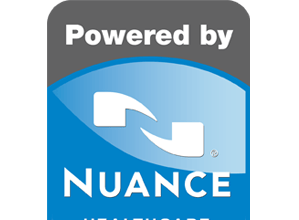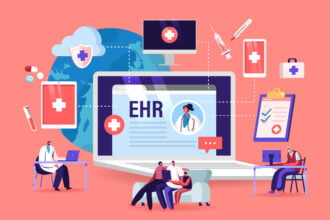

Staff members of physician practices have varying responses to organizational and process change. Some will adjust quickly, others will assume a wait and see attitude, and some may passively (or even actively) resist the move to an EHR. This is why communicating an EHR implementation plan is crucial. To this point, the staff must also be dynamically involved in the integration so that they feel that they have direct input and will eventually come to actively support it. Therefore, by explaining the new processes and identifying the benefits of these changes, each staff member will gain a sense of ownership in their part of the EHR implementation process.
An EHR adoption, like any other IT integration project, will change the job scope and responsibilities of all staff in the practice. This may result in some employees becoming territorial or retreating into a mode of pre-EHR activities; ultimately handing off accountability to someone else. In anticipation of this, EHR implementers need to communicate and receive feedback from every impacted staff member, so they understand and take personal possession of any changes in their job scope and responsibilities.
Processes to Facilitate Change
Both clinical and non-clinical staff may become sensitive to change when they do not perceive any personal or professional advantage to making a change. Physician practices should have an over-arching plan of action to facilitate all aspects of organizational change around EHR adoption:
- Create process teams
Create process teams within the staff to define the new workflow processes. These teams will get the rest of the staff involved and help to educate them as the practice prepares to adopt an EHR. These teams should meet at well-defined intervals on a regular and consistent basis.
- Communicate the logic for EHR adoption
Explain all the benefits of EHR adoption, how each member of the staff will benefit, and how the patients will ultimately benefit by improved quality of care. Be careful to avoid the, “because we said so” or “it’s a government mandate” statements. While this may be true in some instances, it does dot capture the true spirit of EHR adoption.
- Define measurable success factors
Clearly state what the critical success factors are surrounding the new EHR workflows and processes and follow this with a reporting system to evaluate success and improve the processes once the EHR has been fully deployed.
- Clearly communicate results
Establish a communication plan to communicate the definition of success. These communications should happen frequently at pre-defined intervals on a regular basis. Be certain to include all successes (as well as areas for opportunity) in these communications. Nothing aligns people faster than gaining success, even if they are initially small accomplishments.
Communicate, communicate, communicate…
Always communicate extensively with the staff about which phase of the adoption path the EHR implementation is in. Also, as the practice gets to actual implementation, the practice should begin thinking about how it plans to communicate this change to the patients. Within the practice, a well-defined communication plan should be in place that provides a framework for informing, involving, and obtaining buy-in from all participants throughout the duration of the project. Again, Process Teams or Staff Meetings should occur at clearly defined intervals on a regular basis. When training needs have been assessed, a Training Plan that meets the staff’s needs should be clearly communicated to all members of the practice.
Even after establishing and supporting the various avenues of communication, the practice must continue to reevaluate its current needs. Add maturity to the communication processes by creating robust training procedures that are standard and repeatable. This material can then be tailored to meet the specific needs and specialties of the practice as it evolves.
Physician Champions
Finally, physician practices should have clinical leaders or “champions.” The concept of a physician as champion is important in effectively adopting an EHR. Having EHR champion(s) who will lead the communication strategy is essential and displays that they believe in the benefits of EHR adoption.
What does it mean to be a physician champion?
- Lead by example by doing the work and demonstrating to others it can be done
- Help others move through the cultural change process
- Share what they learn to professional colleagues
- Exhibit enthusiasm, patience, and professionalism
- Communicate a consistent message to all staff; both clinical and non-clinical
- Speak with an passionate voice about the EHR implementation and what it holds for everyone involved
- Show commitment: If the physicians are not on-board then the rest of the staff will be hesitant to support it as well
Making a commitment to incorporate teamwork and communication as part of the EHR implementation project is critical to the success of the project; and collaboration, as an integral part of culture change, is an essential part of the EHR implementation plan. While nothing can guarantee success, lack of teamwork, collaboration and communication will certainly advance failure.
photo:skvoor/shutterstock








